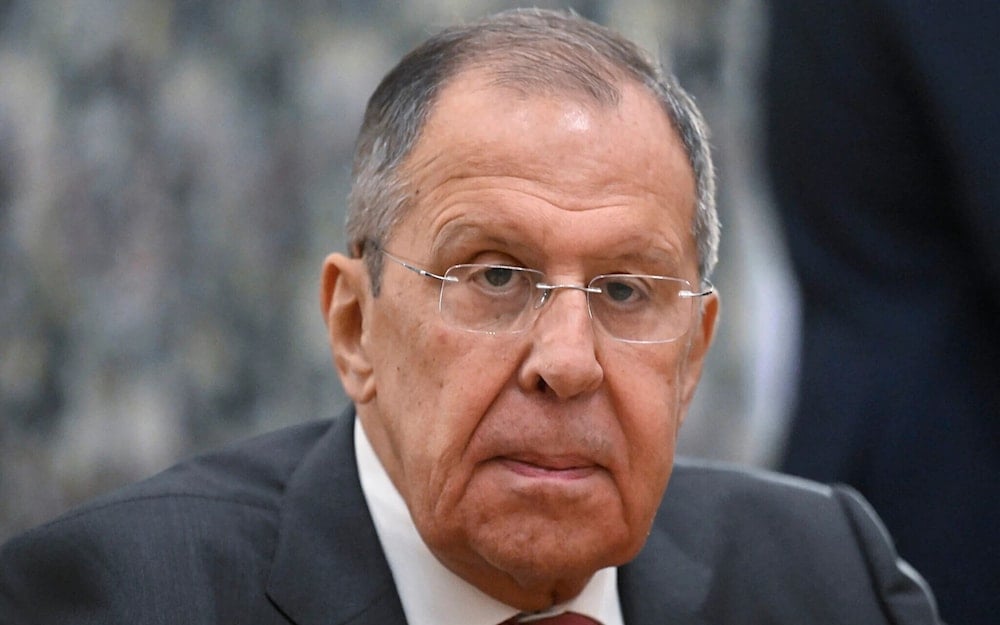NATO's defense spending surge may cause its collapse: Lavrov
Russian Foreign Minister Sergey Lavrov criticized NATO’s increased defense spending following its recent summit, warning that the alliance’s trajectory could lead to collapse and instability.
-

Russian Foreign Minister Sergei Lavrov attends a meeting with his Kuwaiti counterpart in Moscow on October 28, 2024. (AFP)
NATO's surge in defense spending will only damage the alliance and push it toward collapse, Russian Foreign Minister Sergey Lavrov warned, calling for greater pragmatism in its approach, as he addressed reporters following the Collective Security Treaty Organization’s Council of Foreign Ministers meeting.
"He can probably see – since he is such a wise sage – that the disastrous increase in spending of NATO countries will also lead to the collapse of this organization," Lavrov said, responding to Polish Foreign Minister Radoslaw Sikorski’s claim that Russia's military build-up would lead to its downfall.
"Meanwhile, Russia – as President [Vladimir Putin] said the other day in Minsk after the Supreme Eurasian Economic Council meeting – plans to reduce its military spending and be guided by common sense, rather than imaginary threats, as NATO member states do, including Sikorski," Lavrov pointed out.
NATO approves defense spending hike to 5%
Following the NATO Summit held in The Hague on June 24-25, the alliance's member states have agreed to increase defense spending to 5% of GDP, as outlined in the adopted communique, with plans to allocate at least 3.5% of GDP by 2035 based on NATO's agreed definition of military spending.
An allocation of 1.5% of GDP will be dedicated to safeguarding critical infrastructure and networks, enhancing civil preparedness and resilience, fostering innovation, and bolstering the defense industrial base.
Eager to claim credit, Trump hailed the agreement by all 32 NATO member states to work toward spending five percent of GDP on defense, calling it "a great victory for everybody."
During closed-door discussions, diplomats revealed that Trump stressed the importance of US leadership while pushing allies to direct their expanded defense budgets toward purchasing American-made weaponry.
With NATO leaders unanimously praising the agreement as "historic," Belgian Prime Minister Bart De Wever observed that Europe's "long break from history" had ended, emphasizing the continent's urgent need to assume full responsibility for its defense amid escalating geopolitical tensions.

 2 Min Read
2 Min Read










